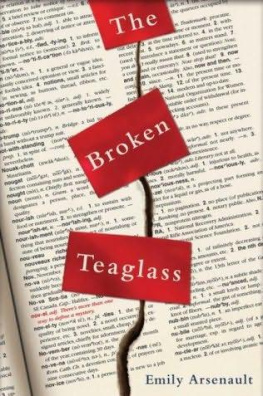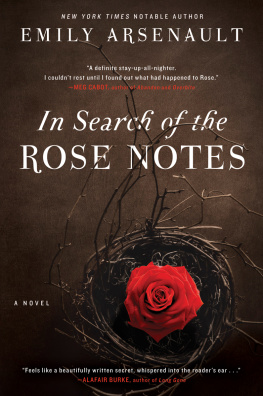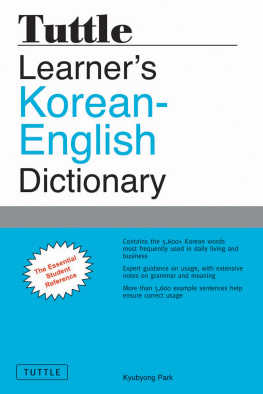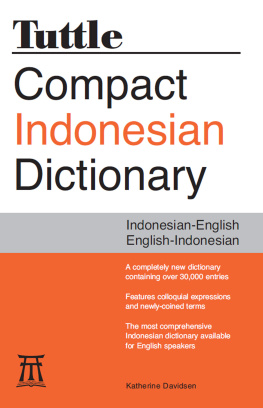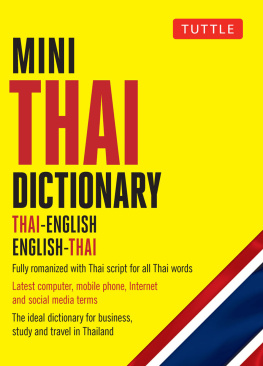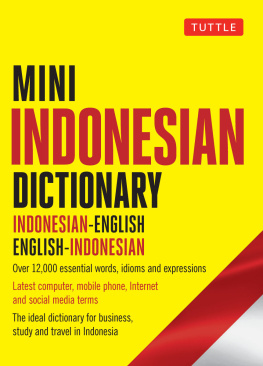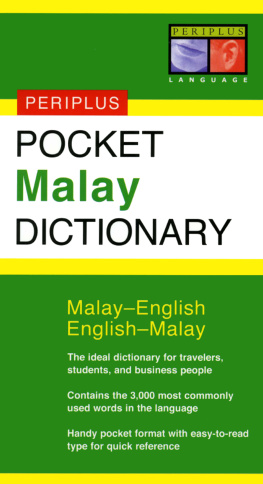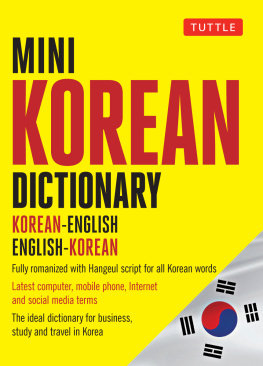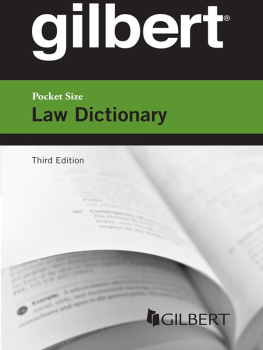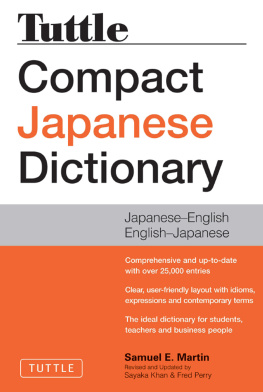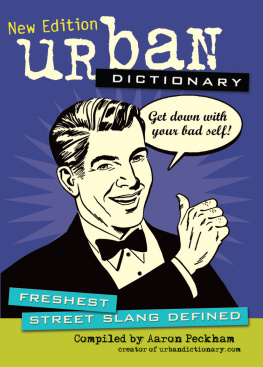Thank you to my wonderful agent Laura Langlie and insightful, enthusiastic editor Kate Miciak, and to everyone at Bantam Dell who helped bring this book to life.
Thanks to everyone who read and commented on all or portions of the manuscript: Jessica Grant Bundschuh, Nicole Moore, Becca Bryer-Charette, Danny Arsenault, Megan Gregory, Sara Jones, Cari Strand, Jacob Vaccaro, Leigh Anne Keichline, Arn Albertini, Mason Rabinowitz, and Rachel Schmidt.
Im also grateful for the support and kindness of the following people: Jane Rastelli, Richard Arsenault, Luke Arsenault, Cyndi Arsenault, Lynella Grant, Kgopoloeng Chabaesele, Lawrence Baepile, and Emily MacFadyen. And reaching a few years backthanks, Alan Chute.
Many thanks to the lexicographers with whom I was once honored to worktruly a more interesting and eloquent bunch than the one imagined here. Also, apologies for the small liberties taken with the lexicographical process.
And of course, to my dear husband, Ross Grantthanks for everything you are and everything you believe I can be.
ABOUT THE AUTHOR
Emily Arsenault has worked as a lexicographer, an English teacher, a childrens librarian, and a Peace Corps volunteer. She wrote The Broken Teaglass to pass the long, quiet evenings in her mud brick house while living in rural South Africa. She now lives in Shelburne Falls, Massachusetts, with her husband.
CHAPTER ONE
How did a guy like me end up in a place like this?
Excellent question. Its the very question that ran through my mind on my first day on the job, and for many weeks hence. How the hell did I get a job at the offices of Samuelson Company, the oldest and most revered name in American dictionaries? In the end, this might strike you as the greater mysterygreater than the one Id later find in the companys dusty files: How does a clod like me end up in training to be a lexicographer?
Now that youve paused to look up lexicographer, are you impressed? Are you imagining lexicographers as a council of cloaked, wizened men rubbing their snowy-white beards while they consult their dusty folios? Im afraid you might have to adjust your thinking just a little. Imagine instead a guy right out of collegea guy who says yup, and watches too much Conan OBrien. Imagine this guy sitting in a cubicle, shuffling through little bits of magazine articles, hoping for words like boink and tatas to cross his desk and spice up his afternoons.
Dont get me wrong. When I first got the job, I was pretty excited. Id been starting to doubt my employability, since Id majored in philosophy. Admittedly, Id applied for publishing jobs on a whim, having heard some English majors talk about it. No one at the big New York companies bit at my rsum, but someone at Samuelson must have liked all the As on my transcript in heady-seeming topics like Kant and Kierkegaard, and they called me just in timejust as I was starting to thumb through pamphlets about the Peace Corps and teaching English in Japan. My interview was with one Dan Wood, a pale, bearded middle-aged guy who didnt really seem to know how to conduct an interview. He mostly just described the defining process quietly, peering at me occasionally as if trying to gauge my reaction. I guess I didnt make any funny faces, because two days later Dan called me to offer the job.
Claxton, Massachusetts, was a far cry from Manhattan, but I wasnt in a position to complain. In fact, I was pretty pleased with myself. The shitty location at least allowed me to get a nice big apartmenton the second floor of a rundown Victorian house near downtown Claxton. Once Id moved all my stuff out of my parents house and bought a few cheap pieces of furniture on credit, I had a week left to prepare for my first day on the job. I bought a couple of corduroy sport jackets with elbow patches. I wondered what kind of sharp-witted young ladies Id meet at the office, and what topics we might discuss by the company coffee machine. I read and reread Strunk and Whites Elements of Style. I worried about sounding like an ignoramus.
Dan Wood met me downstairs on the first day, and led me up to the editorial office and its expanse of cubicles. After parking me at my new cubicle, he set a dictionary in front of me.
Id like you to read the front matter. He lowered his voice as if the request embarrassed him. Thats the section at the beginning of the book. The front matter explains most of the conventions of how our dictionaries are organized. Why senses and variants are ordered as they are, what sort of abbreviations are used, and so on. Its a tradition for our brand-new editorsreading the front matter on the first day.
He paused, watching me open my dictionary to the first page.
Alrighty, I said. I was trying to convey some of the enthusiasm I hadnt had an opportunity to display in the interview. Great.
The corners of Dans mouth twitched a little. Yes. You might find parts of it surprisingly engaging.
I nodded, feeling somehow Id already said too much.
Dan gave an encouraging little nod before disappearing into his office.
The front matter wasnt so bad. There were, admittedly, a few things about the basic arrangement of a dictionary that Id never considered before. That different senses of words are arranged from oldest use to newest use, for example. Or that when there are two equally accepted spelling variations on a single word, they are simply listed alphabetically.
Dan appeared again about an hour into my reading, this time holding a giant blue-bound book. The unabridged edition. Its wide spine barely fit in Dans long fingers. The way he slapped it into my hands reminded me of someone palming a basketball.
The front matter in this one repeats a great deal of the same information. Dan sighed heavily before continuing. But its also much more comprehensive, as the book itself is more comprehensive. You see?
I nodded.
Unless youre some kind of speed reader, he said, this will take you the rest of the day.
When he left, I looked at the clock. It was nine forty-five. I loosened my tie and started in on the section about Guide Words, those little words at the top of a dictionary page that tell you whats on that page. Variants was fairly interesting, as were Inflected Forms and the very long section on Etymology. But it started to get a little stodgy at Capitalization. I wanted to look at the clock again, but knew it would only depress me. Synonyms was no better, and I tried to skip ahead to something more interesting. Guide to Pronunciation, perhaps?
I decided some refreshment might revive my enthusiasm. I poked around in the maze of cubicles for a few minutes, trying to look good-natured but academic. A nice petite middle-aged lady came up to me eventually, introduced herself as Grace, showed me to the water cooler, and disappeared. But there were no paper cups. Back at my desk, I started to read about the different pronunciation symbols in the dictionary. The slashes and hyphens and vowels ceased to have any meaning after about twenty minutes.
I sat up straight and stretched before starting a section on schwas. The schwathe upside-down eessentially stands for a grunt. A nondescript uh sound. A fun, if undignified, role in language study. This was a pronunciation symbol I could relate to. Standing on its head and grunting. Like me the first time I tried tequila, when I was sixteen. It was the same night that the whole varsity team drank beer out of one anothers shoesthe night after our first game of the season. We probably never couldve imagined that one of us would end up in an office like this, poring over a dictionary, thinking of that night. I didnt miss those days, but there was an odd satisfaction in conjuring those guys here, in this scholarly little institution. I stared into the pronunciation symbols and thought of Todd Kurtz lying flat on his back, trying to get his basset hound to drink White Russians out of his open mouth.

